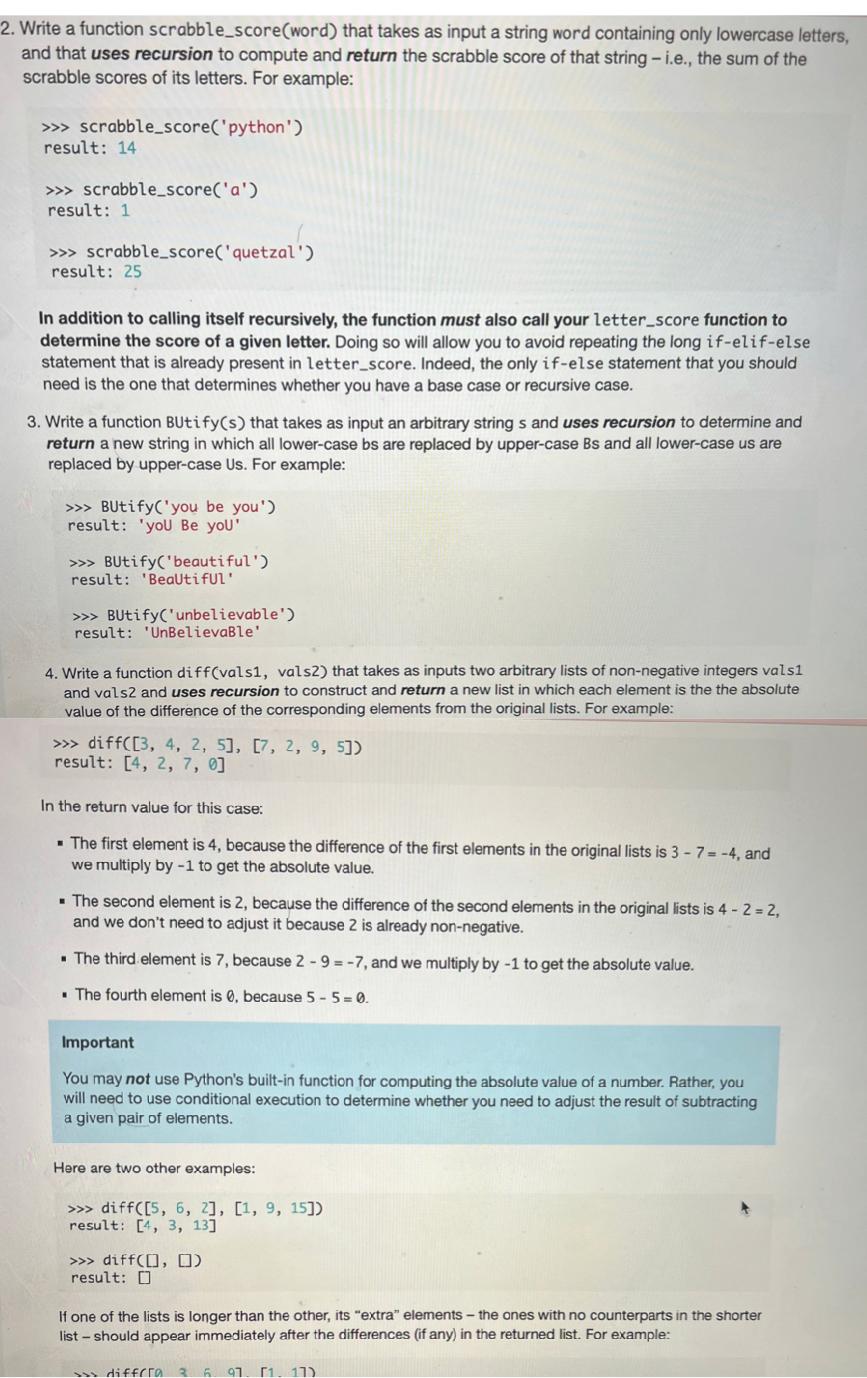 help with this code please, with explanations if you can. thank you!
help with this code please, with explanations if you can. thank you!
2. Write a function scrabble_score(word) that takes as input a string word containing only lowercase letters, and that uses recursion to compute and return the scrabble score of that string - i.e., the sum of the scrabble scores of its letters. For example: In addition to calling itself recursively, the function must also call your letter_score function to determine the score of a given letter. Doing so will allow you to avoid repeating the long if-elif-else statement that is already present in letter_score. Indeed, the only if-else statement that you should need is the one that determines whether you have a base case or recursive case. 3. Write a function BUtify(s) that takes as input an arbitrary string s and uses recursion to determine and return a new string in which all lower-case bs are replaced by upper-case Bs and all lower-case us are replaced by upper-case Us. For example: >> BUtify('you be you') result: 'you Be you' > BUtify('beautiful') result: 'BeaUtiful' > BUtify ('unbelievable') result: 'UnBelievaBle' 4. Write a function diff(vals1, vals 2 ) that takes as inputs two arbitrary lists of non-negative integers vals1 and vals2 and uses recursion to construct and return a new list in which each element is the the absolute value of the difference of the corresponding elements from the original lists. For example: diff([3,4,2,5],[7,2,9,5]) result: [4,2,7,0] In the return value for this case: - The first element is 4 , because the difference of the first elements in the original lists is 37=4, and we multiply by 1 to get the absolute value. - The second element is 2 , because the difference of the second elements in the original lists is 42=2, and we don't need to adjust it because 2 is already non-negative. - The third element is 7 , because 29=7, and we multiply by 1 to get the absolute value. - The fourth element is , because 55=0. Important You may not use Python's built-in function for computing the absolute value of a number. Rather, you will need to use conditional execution to determine whether you need to adjust the result of subtracting a given pair of elements. Here are two other examples: If one of the lists is longer than the other, its "extra" elements - the ones with no counterparts in the shorter list - should appear immediately after the differences (if any) in the returned list. For example
 help with this code please, with explanations if you can. thank you!
help with this code please, with explanations if you can. thank you!





